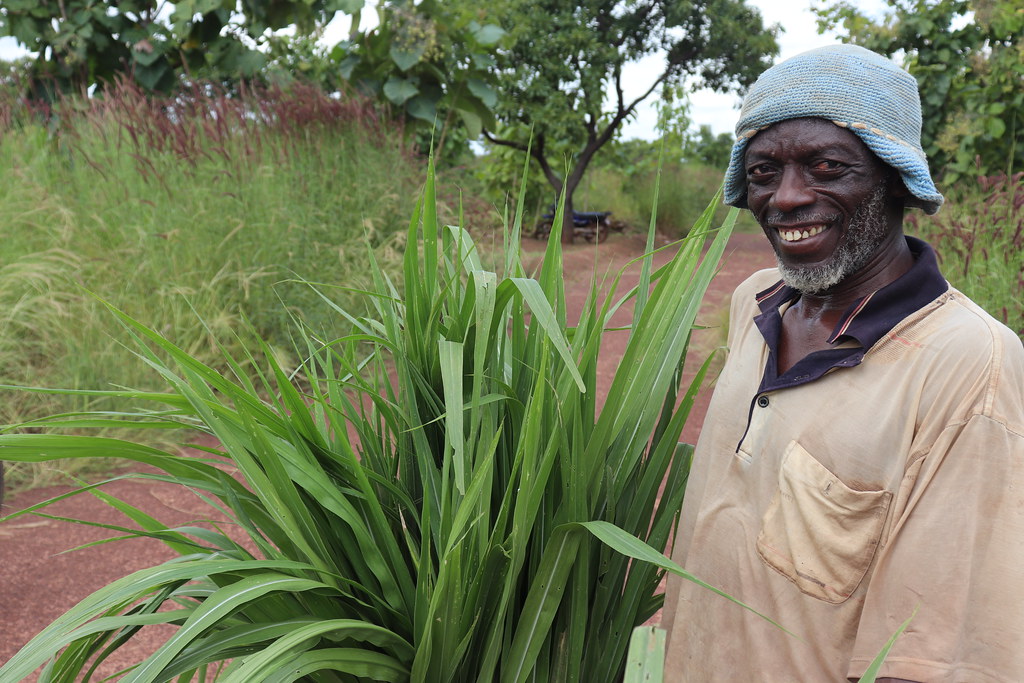How conditional incentives like farmer inputs affect adoption of sustainable intensification
Ensuring nutritionally adequate food supply in Africa south of the Sahara requires the sustainable intensification (SI) of its agricultural sector. This is especially the case in the face of expected population growth and climatic changes which make it necessary to expand the suite of the available integrated technological options. Although availability of technological options is a significant first step, the subsequent logical steps of farmer testing, and adoption of the technologies are equally vital and daunting.
A recent study by scientists from the Center for Development Research, University of Bonn and the International Institute of Tropical Agriculture (IITA) on ‘Stimulating innovations for sustainable agricultural practices among smallholder farmers: Persistence of intervention matters’ published in the Journal of Development Studies examined whether incentivizing farmers (with conditions) and providing them with information would increase the rate of adoption. ‘Our findings underscore the need to support farmers in their adoption of new agricultural technologies given the heterogeneity in farming systems in sub-Saharan Africa,’ said Shaibu Mellon, the lead author.
The research was hinged on Africa RISING work in northern Ghana where, since 2012, the program has supported communities of farmers to improve their crop productivity through training, input support, and demonstration of SI practices. The SI practices were hosted in on-farm experimental sites (also known as technology parks) in all the intervention communities and were demonstrated to all farmers in the communities. These practices included proper fertilizer application, different crop spacing, line sowing, use of improved seed varieties, and maize-legume intercropping.
To stimulate farmers’ adoption, the program incentivized some of the trained farmers to adopt the SI practices by offering the farmers improved seeds and fertilizers. The items were given out to the farmers on the condition that they replicate practices from the park and the items were not randomly assigned. The program also assisted the incentivized farmers to implement the SI practices on their farms through collaboration with the government extension agents. Farmer field days were also organized within the intervention communities to expose other farmers to the SI practices. However, in 2016, the program phased out 13 intervention communities due to limited funding, but work continued in 12 communities.
The study examined the effects of conditional inducement on maize yield and net income of farmers, as part of the dissemination of sustainable intensification of agricultural practices (SI practices) in northern Ghana. Data from continuous induced farmers was compared with that from past induced and non-induced farmers. The study found that
- Easy access to both information and markets can motivate a farmer’s decision to be induced.
- Farmers’ resource endowment affects their decision to be induced. Farmers would require more labour in implementing the SI practices which may hinder their decision to be induced.
- Farmers in the Northern Region are more likely to engage in off-farm income activities due to their easy access to markets.
- Continuous inducement may further lead to increases in crop yield and net income of farmers. The conditional inducement is somewhat more cost effective than a farmer field day.
On the other hand, the study noted that the continuously induced farmers would have had their maize yields and net incomes decreased by about 64% and 54%, respectively if the incentives had been discontinued. That is because the farmers would have dis-adopted the agriculture technologies due to early termination of the programs and promotion of those technologies. Some of the reasons for low adoption and dis-adoption noted by the study include lack of information, high transaction cost due to bad road network, lack of access to formal credit and insurance, procrastination, and inconsistencies in the use of inorganic fertilizers, lack of access to inputs, and differences in agro-ecological condition.
To address these challenges, the study recommends that agricultural programs provide support services such as improvement of farmers’ learning through extension services and have effective collaboration between government ministries and development agencies in the diffusion process to sustain adoption post interventions. ‘Providing inputs is only a first step in overcoming the immediate obstacles to adoption of new agricultural technologies, programs should focus on sustaining adoption,’ emphasized Bekele Kotu, an IITA scientist.






Latest Comments